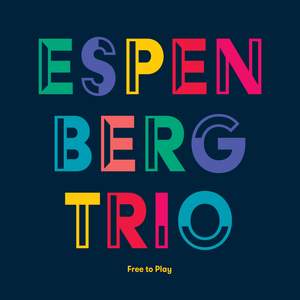The exquisite and enchanting 'Free To Play' is the Espen Berg Trio's third album. From the trippy high-end keyboard and percussion tones which light up the first moments of opening track "Monolitt," your instincts tell you Free To Play is going to be special.
"Monolitt" is wholly improvised. It came about by chance, on an impulse, before recording proper had really started. Berg, heard elsewhere on piano, plays celesta. Bassist Bardur Reinert Poulsen bows high harmonics. Drummer Simon Olderskog Albertsen bows a singing bowl. "The celesta was in the studio when we arrived," says Berg. "So we tried it out. It's a one-taker. I think the combination of bows and celesta worked out great.". "Monolitt" casts a spell which endures throughout the album.
As Berg acknowledges, his style also evokes romantic and impressionist classical music. But the connection is coincidental rather than considered. "People often think I'm deeply into the classics," he says. "And I have played some pieces by Ravel and Chopin. But not much more than that. My musical memory retains what I play, so the few classical pieces I have played have become a part of my playing and suggest a broader influence than is really the case."
Ultimately, Berg's music is beyond category. As Ellington said, there are two kinds of music: great music and not great music. Berg's is great music. But he is happy enough with the label jazz. "I've grown accustomed to it, though I never think that I have to write 'jazz' for this trio or for any band that I'm playing in," he says. "I just write what I feel is nice at the moment. I'm on an endless journey without frontiers, searching for new moods, new chord combinations and heartfelt melodies."





